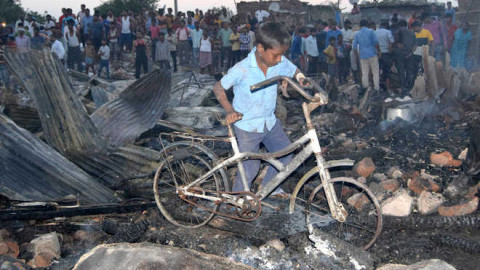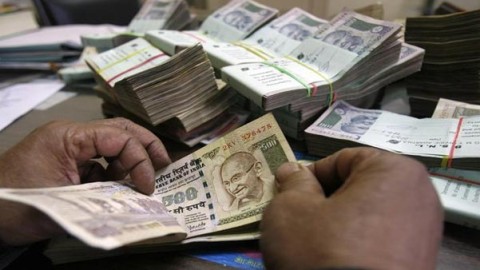With an objective to spread awareness among school children on the adverse effects of global warming and related environmental problems, Tellusart, a Swedish non-government organisation, recently conducted an art workshop in Chandigarh.
The workshop witnessed a participation of about 200 students from various educational institutes in and around the city. Twelve Swedish artistes were present throughout the day to provide valuable inputs to students and share their concepts.
“It was about nature and the issue about global warming which is really bad. All the children came here today with ideas, thoughts in their drawings and to visualise their emotions about global warming,” noted Anetie Anderson, a senior member of Tellusart.
Two exhibitions of art works by children were also organised at the venue of the workshop.
One exhibition was of paintings from six Asian countries while the other titled ”Fusion Group Show” showcased works by Swedish artistes who conducted the workshop and a few other artists from Punjab too.
A significant number of children expressed their vivid imagination about the changing environment through their creative sketches and paintings to leave a positive impact in the minds of the viewers.
“I have made a forest which is burning and all the greeneries around it are about to burn. We should stop using plastic bags, perfumes and lot of chemicals so that holes are not made in the ozone layer,” observed Swati, a young student.
Tellusart is committed to highlight several issues, which calls for collective attention of the society through the power of art and this was one of the reasons why it was invited to conduct the 4-day workshop at Chandigarh, said Ajmer Sandhu,one of the organisers.
“Our project is about art media and we believe art is a powerful media. It can not only move the persons but can also move the souls and hearts through the power of art,” said Ajmer Sandhu, art organiser-curator.
According to scientific research, rising temperatures could wipe out more than half of the earth’’s species in the next few centuries.
Incidentally, developing nations such as India and China, among the world’’s worst polluters, are exempt from adopting emission targets under the Kyoto Protocol because they need to burn fossil fuels to lift massive chunks of their population out of poverty.






